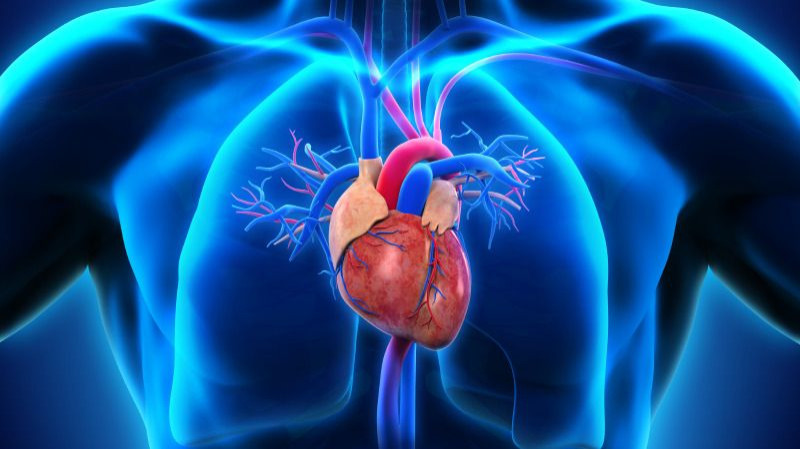Wolff-Parkinson-White (WPW) syndrome is a rare but significant heart condition that can lead to serious complications if not managed properly. It is characterized by the presence of an extra electrical pathway in the heart, which can result in rapid heart rhythms (arrhythmias). These episodes may present as palpitations, dizziness, chest pain, shortness of breath, or even lead to sudden cardiac arrest in extreme cases. Fortunately, catheter ablation offers a highly effective treatment option for those diagnosed with this condition. If you're searching for ablation for Wolff Parkinson White in UAE, this article will walk you through everything you need to know — from diagnosis to treatment options — with insights from leading specialists a trusted name in heart care.
What is Wolff-Parkinson-White Syndrome?
WPW is a condition where an extra electrical pathway (also known as an accessory pathway) exists between the upper (atria) and lower (ventricles) chambers of the heart. This can allow electrical impulses to bypass the normal route and create a loop, leading to rapid heartbeats or arrhythmias. Although some individuals with WPW may remain asymptomatic, others can experience sudden and severe symptoms.
Common complications associated with WPW include:
Supraventricular Tachycardia (SVT)
The most frequent arrhythmia in WPW, SVT results from the extra pathway forming a re-entry circuit, which leads to episodes of very fast heartbeat. This can cause palpitations, fatigue, chest pain, or even fainting.
Atrial Fibrillation (AF)
WPW increases the risk of atrial fibrillation, especially in young patients. The condition becomes more serious when AF impulses are conducted rapidly to the ventricles via the accessory pathway.
Sudden Cardiac Arrest
Although rare, this is a life-threatening event linked to WPW when very fast and chaotic heart rhythms interrupt the heart's ability to pump blood effectively.
Diagnosis of WPW
Most cases of WPW are identified via an electrocardiogram (ECG), where characteristic patterns (like a short PR interval and delta wave) can point to the condition. However, further testing might be necessary:
Holter Monitor – A wearable device that records heart activity over 24–48 hours.
Stress Test – To monitor how the heart performs under physical activity.
Echocardiogram – To visualize heart structure and function.
Electrophysiology (EP) Study – A detailed test to assess the nature and risk of the accessory pathway.
Treatment Options for WPW
Treatment for WPW depends on several factors, including symptoms, risk profile, and findings from diagnostic tests. Experienced heart specialists in Dubai customize each treatment plan to ensure the best outcomes.
1. Observation
If the accessory pathway is deemed low-risk and the patient is symptom-free, no immediate treatment may be necessary. Routine monitoring by a cardiologist is recommended.
2. Medications
Antiarrhythmic drugs can help manage heart rhythm in patients not suitable for ablation. However, medications typically offer temporary control rather than a cure.
3. Catheter Ablation
This is the most definitive treatment for WPW. It involves inserting a catheter through a vein (usually in the groin) to reach the heart. Once the problematic pathway is located, radiofrequency energy is delivered to destroy the tissue, eliminating the source of abnormal electrical impulses.
Catheter ablation has a success rate of over 95%, is minimally invasive, and involves a short recovery period. Complications are rare, and most patients resume normal activity within a few days.
If you're looking for ablation for Wolff Parkinson White in UAE, TheHeart.ae offers this advanced treatment using the latest technology under the supervision of expert electrophysiologists.
4. Surgical Intervention
Surgery is rarely needed and is considered only when ablation and medication fail, or when the patient is undergoing heart surgery for another reason.
Why Choose Catheter Ablation?
Curative Treatment: Unlike medications that only control symptoms, ablation can completely eliminate the problem.
Low Risk: The procedure is safe and performed routinely by experienced specialists.
Quick Recovery: Most patients return to normal activities within a few days.
What to Expect Before and After Ablation
Before undergoing catheter ablation, patients undergo a detailed EP study to map out the accessory pathway. On the day of the procedure, local anesthesia is used, and sedation may be administered. The procedure typically takes 2–3 hours.
Post-procedure care includes:
Short hospital stay (usually overnight)
Avoiding strenuous activity for a few days
Regular follow-up with your cardiologist
Our heart specialists in Dubai provide detailed pre- and post-procedure support to ensure patients feel confident and informed every step of the way.
Conclusion
Wolff-Parkinson-White syndrome, though potentially serious, can be effectively treated — and even cured — with catheter ablation. If you or a loved one has been diagnosed with WPW, don’t wait. Schedule a consultation with a qualified electrophysiologist to explore your options. Choosing ablation for Wolff Parkinson White in UAE could be a life-changing decision.
We stands out as a trusted destination for ablation for Wolff Parkinson White in UAE, offering expert-led, compassionate, and evidence-based treatment to patients across the region.





Comments